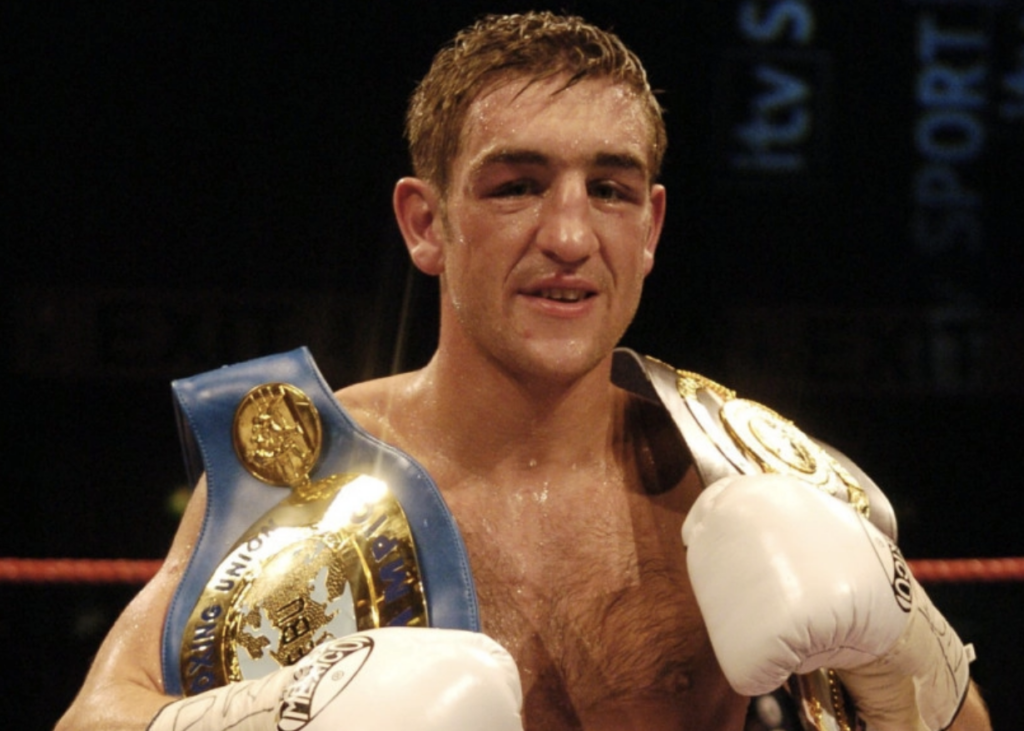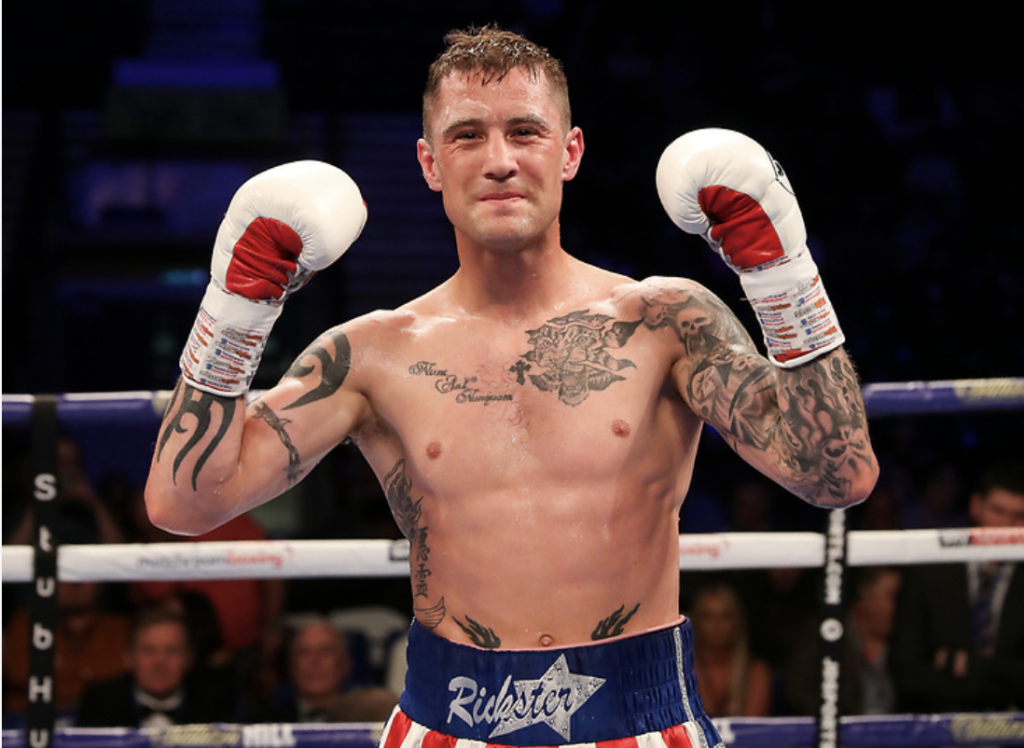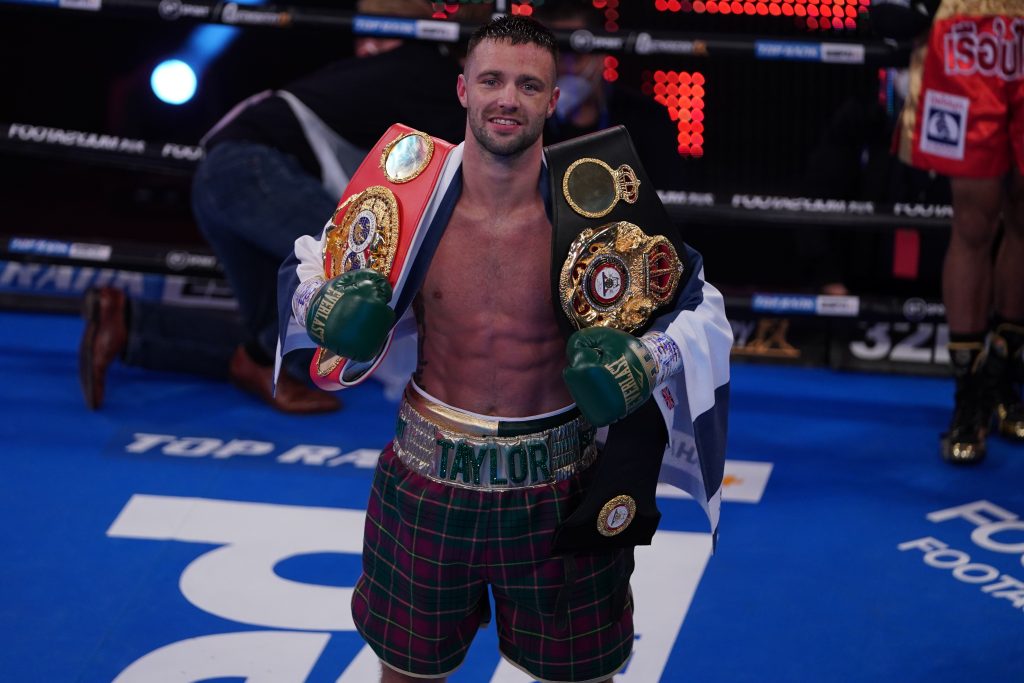In celebration of Scotland’s traditional Burns Night, John Angus MacDonald looks back through boxing history to compile a list of the ten finest fighters to ever emerge from the nation.

10. Alex Arthur
Arthur prided himself on doing things the traditional way, honing his craft by winning the British, Commonwealth and European super-featherweight titles. Whilst on the way up, Arthur took the undefeated records of fellow Scots, Willie Limond and Ricky Burns.
Arthur also played his part in a domestic classic with Michael Gomez, the Mancunian looked better than he had before or since, and stopped the Edinburgh native in fifth frame. Arthur rebuilt, but failed to secure an all-Scottish world title fight Scott Harrison. Arthur finally got his shot at a version of a world title when he halted Koba Gogoladze in the 10th round, to win the WBO interim super-featherweight title.
He was soon upgraded to full champion status, but by the time Arthur was able to call himself a world champion, he had outgrown the 130lbs weight class. An arduous weight cut contributed to him losing the belt in his first defence against Nicky Cook.
9. Scott Harrison
Harrison may now be best known for his various brushes with the law which would go onto derail his career, but in his prime he was a formidable fighter. In 2002, Harrison won the WBO featherweight title, halting Victor Santiago in the sixth round. He made defences against Julio Pablo Chacon and Wayne McCullough, before losing his title to Manuel Medina, by split decision.
Five months later, Harrison would right the wrong, stopping Medina in the 11th. Harrison would make six defences in his second spell as champion, including a victory over Michael Brodie. In 2006, while incarcerated in Spain awaiting trial, the WBO stripped Harrison of the title. A case of what might have been.
8. Johnny Hill
Scotland’s first ever world champion achieved a lot in his three years as a professional. In just 23 fights, Hill captured the British, European and world title. Hill first caught the eye as an amateur, winning the Scottish title at flyweight and bantamweight, under the tutelage of James ‘Tansy’ Lee, the first Scotsman to win the Lonsdale belt outright. Two years later, Hill would win the ABA title, upsetting the favourite, Ernie Warwick.
When the Edinburgh man turned professional, his success continued, capturing the British flyweight title within 12 months of turning over, by halting Englishman Alf Barber. A little over a year later, Hill captured the world title by outpointing Newsboy Brown over fifteen rounds. Hill suffered his only defeat against Emile Plander, who the Scotsman had beaten twice previously. Hill’s short, successful career came to a tragic end as he died aged 23 of pneumonia the day before he was scheduled to face, 1920 Olympic Gold medallist, Frankie Genaro.
7. Jim Watt
Having knocked out John H. Tracey inside the first round to win ABA Championships in 1968, Watt was expected to represent Great Britain at Mexico Olympic Games. However, Watt declined in favour of turning professional. Watt always knew his own mind and did things his way.
The southpaw’s defensive style early in career made him an acquired taste, but also meant he was hard to beat. Watt captured the WBC lightweight title, that had recently been vacated by Roberto Duran, by halting, Columbian puncher, Alfredo Pituala in the 12th round. Watt made two defences of his title against Roberto Vasquez and Charlie Nash before taking on Howard Davis Jr, at Ibrox Park.
The American had captured gold at 1976 Montreal Olympics and had been awarded the Val Barker Trophy for the most outstanding boxer at the games. Davis Jr arrived in Glasgow proclaiming: “Jim Who?’ Yet, Davis Jr’s amateur credentials were no match for Watt’s skill and experience as Watt won a 15-round decision on a soggy night in Glasgow. Watt would eventually lose his title to Alexis Arguello.

6. Ricky Burns
Burns became the country’s first three-weight world champion when he recorded a rare stoppage, halting Michele Di Rocco to win the vacant WBA super-lightweight title. Burns first became a world champion in 2010 as he survived an opening round knockdown to upset the then-undefeated Roman ‘Rocky’ Martinez to claim the WBO super-featherweight title.
After three defences, ‘Rickster’ moved up to lightweight and captured the WBO interim title against Michael Katsidis, Burns was soon upgraded to full champion, recording wins over Paulus Moses, Kevin Mitchell and Jose A. Gonzalez. After a contentious draw against Raymundo Beltran, Burns lost his belt to Terence Crawford.
5. Walter McGowan
Having previously held the British and Commonwealth titles, McGowan became the third Scot to win the lineal 112lbs title (behind Benny Lynch and Jackie Paterson) when he defeated Salvatore Burruni. Victory was extra sweet for McGowan as Burruni had beaten him two years previous to retain his European title.
McGowan’s title reign would come to an end in Thailand in the cruellest of circumstances. McGowan sent his opponent, Chartchai Chionoi to the canvas twice in the second round, but a severe cut sustained to the Scotsman’s nose forced the referee to halt proceeding in the ninth round. McGowan got his chance at redemption nine months later but suffered the same unfortunate fate.
McGowan was in front on the scorecards when a cut over his left eye, caused by an overhand right, obliged the referee to stop the contest. Despite the disappointing ending to his time as a world champion, McGowan was an excellent technician and one of the few fighters from the British Isles to win a world title during the 1960s.

4. Josh Taylor
Less than six years into his professional career, Taylor is in possession of two versions of the super-lightweight title, taken the “0” of five fighters, defeated four current or former world champions and his last five opponents possessed a combined record of 116-1.
The southpaw could climb higher up this list later this year, if he defeats Jose Ramirez to become the undisputed champion at 140lbs. With a frame that would easily allow him to compete at welterweight, the ‘Tartan Tornado’ could yet become a two-weight world champion.
3. Jackie Paterson
Royal Air Force Sergeant Paterson made history when he became the first southpaw to win the world flyweight title, by halting Peter Kane in the first round of their fight, at Hampden Park. As well as world title success, his stoppage victory saw him win the Lonsdale belt outright.
A portsider with power in both hands, resulted in Paterson becoming a difficult proposition for any fighter. A testament to Paterson’s dominance is that at one stage he held the World, British and Commonwealth flyweight titles, as well as the European and Commonwealth bantamweight straps simultaneously.

2. Ken Buchanan
No Scotsman has won a world title in more challenging conditions than those faced by Buchanan, when he captured the WBA lightweight belt against Ismael Laguna in San Juan, Puerto Rico. The bout took place in an outdoor arena at two PM and started in unbearable heat and finished in a torrential downpour.
Buchanan, who had returned to the sport after a short retirement, had been brought in to lose, but he refused to be denied by the weather or the skilful Panamanian, capturing the title by split decision. The American Boxing Writers’ Club awarded the contest the 1970 Fight of the Year award.
Five months later, Buchanan became the undisputed lightweight champion when he added the WBC belt to his WBA strap by defeating Ruben Navarro by unanimous decision. Buchanan would best Laguna once more before relinquishing his title to, the great, Roberto Duran. Although he never recaptured the world title, Buchanan went onto to defeat former titlist, Carlos Ortiz and future champion Jim Watt.
1. Benny Lynch
Like others on this list, Benny Lynch’s career was tragically short, yet despite being forced to retire at 25 due to alcoholism, Lynch is considered one of the greatest flyweights of all-time. At 22, Lynch became a world champion when he obliged the referee, Moss Deyong, to halt the contest having dropped Jackie Brown eight times within two rounds. Lynch went on to beat Small Montana by 15-round decision, unifying the flyweight championship for the first time in over a decade.
Lynch’s enthusiasm for the rigors of training started to wane, however he managed to motivate himself for one more phenomenal performance stopping, future world champion, Peter Kane in 13th round. Within a year, Lynch would lose his title on the scales as he came in overweight against Jackie Jurich. He fought twice more, in losing efforts before retiring. Eight years later, he passed away at 33, due to pneumonia.